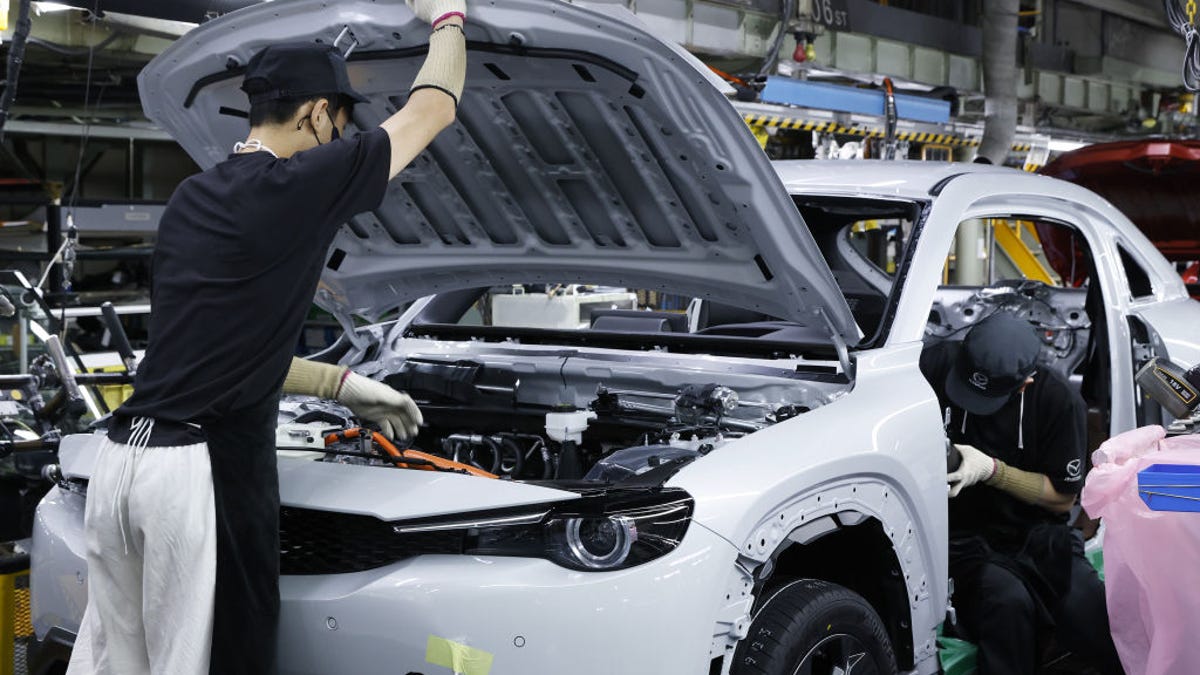US Signs Trade Deal With Japan on Electric Vehicle Battery Minerals
The quickly negotiated agreement could allow Japanese vehicles to qualify for the $7,500 EV tax credit.

Electric vehicles made with battery minerals mined or processed in Japan could qualify for an EV tax credit in the US.
The US and Japan have inked a trade deal for electric vehicle battery minerals in advance of new guidelines for the EV tax credit that are expected to be announced this week.
Signed by US Trade Representative Katherine Tai and Japanese ambassador to the US Koji Tomita, the agreement could allow Japanese EVs to qualify for the tax break, which is worth up to $7,500.
"Japan is one of our most valued trading partners and this agreement will enable us to deepen our existing bilateral relationship," Tai said in a statement Tuesday.
Last year's Inflation Reduction Act transformed the EV tax credit, adding income caps and price limits. It also required that qualified vehicles had to be assembled in the US and include a percentage of components manufactured here, as well.
Read on: It's About to Get a Lot Harder to Claim the EV Tax Credit
Automakers have criticized that mandate, saying that most EVs won't meet the stringent requirements.
"The $7,500 credit might exist on paper," John Bozzella, CEO of the Alliance of Automotive Innovation, wrote days before the Inflation Reduction Act was passed, "but no vehicles will qualify for this purchase over the next few years."
While most provisions went into effect in January, final guidance on battery sourcing was pushed back to give the Treasury Department more time to iron out details.
The department has promised it will announce those particulars before the end of March.
Half of the $7,500 credit is dependent on a minimum percentage of a battery's "critical minerals," including lithium, nickel and cobalt, having been extracted or processed in the United States or in a nation with which the US has a free trade agreement.
That amount would start at 40% in 2023 and ratchet up each year until it capped out at 80% in 2027.
Japan isn't one of the 20 countries that have a free trade deal in place with the US, however, meaning EVs from one of the world's largest carmaking nations would be left out of the lucrative tax break.
Japanese trade minister Yasutoshi Nishimura said the quickly negotiated agreement, which will be reviewed every two years, will allow EVs made with battery minerals mined or processed in Japan to meet the requirements laid out by the Inflation Reduction Act, Reuters reported.
But senior officials in the Biden administration told CNBC the final determination would be up to the Treasury Department.
The White House is now pursuing a similar agreement with the EU.

